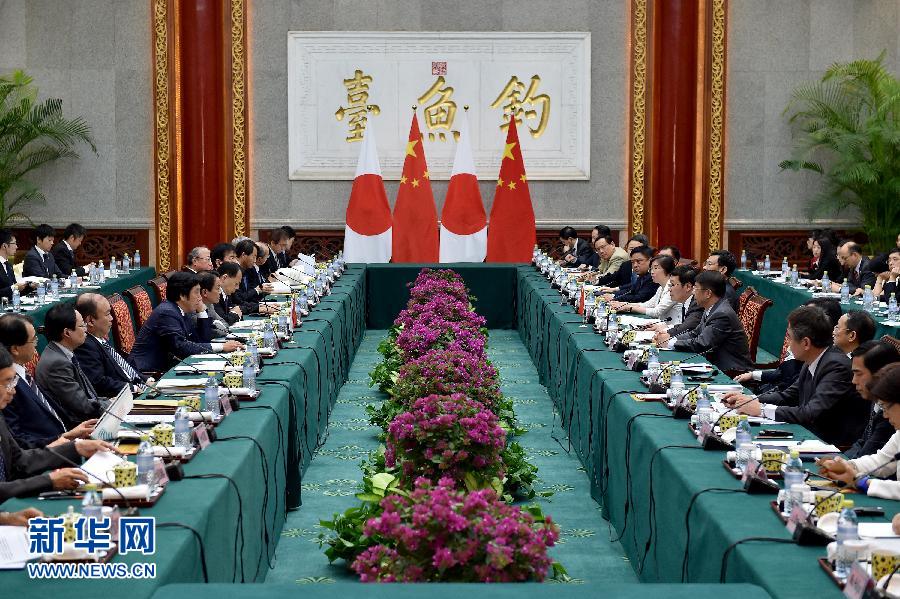China, Japan reopen finance talks
 0 Comment(s)
0 Comment(s) Print
Print E-mail Xinhua, June 6, 2015
E-mail Xinhua, June 6, 2015
 |
China and Japan held their fifth finance dialogue in Beijing on Saturday after about two years of delay due to sour relations.
Chinese Finance Minister Lou Jiwei talked with Japanese Deputy Prime Minister and Finance Minister Taro Aso over cooperation in economic, financial and international affairs.
The fourth dialogue was held in Tokyo in April 2012. But disputes over history and territory issues strained the bilateral relations and delayed the fifth dialogue scheduled for 2013 in China.
The ministers agreed that the dialogue is of great significance for both sides, as it helps deepen exchanges of macroeconomic situation and policy measures of the two countries, strengthen financial cooperation, and advance China-Japan strategic and mutually beneficial relationship in the economic and financial fields, said a statement released after the dialogue.
Both sides said they are committed to deepening communication and coordination of macroeconomic policies, strengthening communication and cooperation in dealing with external risks and uncertainties, and maintaining consultation on major international economic and financial issues.
The two ministers emphasized the need to further deepen bilateral pragmatic cooperation in finance, enhance policy communication in budget, taxation, social security reform, public debt management and tariff, scale up financial cooperation and support collaboration in the economic, trade and investment fields.
"As neighbors, peace and friendliness are the mutual aspirations of peoples of the two countries. A friendly relationship between China and Japan will be conducive to economic development in Asia," Lou said at the opening ceremony of the dialogue.
The dialogue comes as relations have shown signs of improvement since November last year, when Chinese President Xi Jinping and Japanese Prime Minister Shinzo Abe held their first meeting since the duo took office during the Asia-Pacific Economic Cooperation Leaders' Meeting in Beijing, in a sign of thawing ties between the world's second and third largest economies.
Prior to the Xi-Abe meeting, the two side reached a four-point principled agreement to improve bilateral ties, in which the two sides agreed to resume political, diplomatic and security dialogue while acknowledging different positions on the Diaoyu Islands.
Just last month, a 3,000-member Japanese visiting delegation arrived in Beijing, an event observers said would improve mutual understanding and trust.
Lou said that both sides should continue to build mutual trust and make more progress in fiscal and financial cooperation with "greater sincerity, foresight, and a pioneering spirit", as it will keep "injecting positive energy" to China-Japan relations.
During Saturday's dialogue, China and Japan also agreed to strengthen cooperation in the G20 to actively implement previous summits' consensus, and push for new achievements in the Antalya Summit in 2015.
The two sides also pledged to further advance financial cooperation in East Asia and discussed the direction for the future development of ASEAN+3 financial cooperation. The ASEAN+3 is an economic cooperation mechanism among the ASEAN bloc, China, Japan, and the Republic of Korea.
The two sides will promote infrastructure development in Asia, through coordination between financial institutions, on the basis of common interests.
The Asian Infrastructure Development Bank is quickly shaping up and is scheduled to begin operations later this year. Aso said the Asian Development Bank, a Japan-led institution, also plans to invest 110 billion U.S. dollars over the next five years to aid infrastructure building in Asia.
Lou and Aso agreed to hold the Sixth China-Japan Finance Dialogue in Tokyo next year.




Go to Forum >>0 Comment(s)